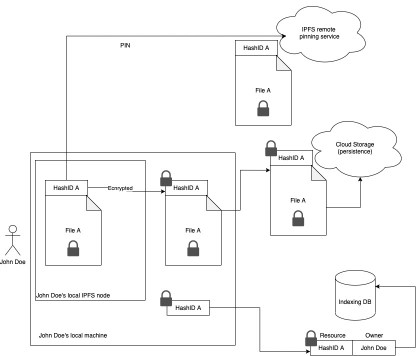


Montréal - TheNewswire - May 17, 2021 - ZeU Technologies Inc. (CNSX:ZEU.CN) (OTC:ZEUCF) is pleased to disclose that its development team has made significant breakthroughs pertaining to the way files are exchanged, encrypted, and protected that will be making planned and scheduled data backups a thing of the past. A provisional patent application is being filed to protect the related IP.
The protocol developed will be implemented in parallel with a new password recovery technology that will be disclosed as soon as the related patents are filed in the coming days. In total, three patent applications are expected to be necessary to protect the intellectual property created.
Ransomware-neutralizer data management platform
The new protocol, dubbed MulaKeep, allows for the persistence of data, rendering ransomware encryption attacks useless. Ransomware is a malicious piece of software designed to encrypt the critical files and data of a targeted computer or server. Ransomware can be spread through phishing emails, infected attachments, or visiting an infected website. The launch of the ransomware effectively ‘locks’ the data through encryption until a ransom is paid and the attacker provides a decryption ‘key’. The Mula data platform will allow fully decentralized storage and will be able to neutralize ransomware attacks, effectively making it ransomware-proof.
The user data travels and is stored using the IPFS protocol. One goal of the IPFS protocol is to preserve humanity’s history by letting users store data while minimizing the risk of that data being lost or accidentally deleted.
The Company will disclose further information on its new hybrid encryption approach and password recovery method, for which additional provisional patents will be filed in the coming days. It is important to know that data is never in ZeU’s possession and that only the legitimate user is able to recover and decrypt the information that they own or for which they have been identified to receive.
Saving a file to MulaKeep: A User Case
John Doe wants to save his file on MulaKeep. Using his MulaKeep user interface, he will upload the file. The upload includes these steps:
-
1. The MulaWallet will encrypt the file.
-
2. The encrypted file will then be pinned to IPFS storage (local node and remote pinning service), generating a unique IPFS content hash for permanence. If a remote pinning service or a centralized persistence layer are used, we are aiming for persistence as well.
-
3. The IPFS address will be encrypted.
-
4. The encrypted file will then be stored in a centralized storage for double security persistence and identified by the encrypted IPFS address. This phase is to guarantee that the file will never be completely lost.
-
5. The encrypted IPFS address will also be indexed as the user’s property in a centralized database. If the user keeps a local or remote registry of all his files, he can retrieve his files without using the MulaKeep API. No matter what, the MulaKeep user interface will call the MulaKeep API, which will index this file (using the encrypted HashID generated from IPFS) for later should the user want to fetch his collection of files.
Note: Metadata like filename and size will be contained in the indexing database.
Fig 1. Journey of a file saved by John Doe.
Ransomware attack recovery
Alice’s machine is subject to a ransomware attack, i.e., all the files on her machine are encrypted by the ransomware algorithm, including the local node and the wallet’s private key. Given that Alice took care to secure her private key somewhere safe, she will be able to get back all her documents from another machine in a safe way because all her documents were pinned in a remote pinning service and, as another security measure, in a cloud storage in an encrypted state, this time including the HashID encrypted. Also, as IPFS is based on content addressing, encrypting a document owned by Alice on the network will mean creating a new resource with another content address, therefore another HashID (CID), i.e., the permanence of content.
The method is being integrated within the Mula platform. It will work with MulaMail, the core application of the Mula suite. MulaMail is completed and currently being tested internally. It will receive a comprehensive user interface (UX) in the coming week for a beta deployment this summer.
ON BEHALF OF THE BOARD OF DIRECTORS
“Frank Dumas”
Frank Dumas
President & CEO
About ZeU
ZeU is a forward-thinking Canadian technology company that has developed a state-of-the-art blockchain protocol, providing the foundation for the next generation of encrypted and distributed networks. Thanks to its high level of sophistication, ZeU’s technology maximizes transparency, security, and scalability as well as big data management. ZeU’s strategy is to monetize blockchain transactions in diverse sectors such as payment, gaming, data, and healthcare.
Neither the CSE nor its Regulation Services Provider accepts responsibility for the adequacy or accuracy of this release.
Copyright (c) 2021 TheNewswire - All rights reserved.















